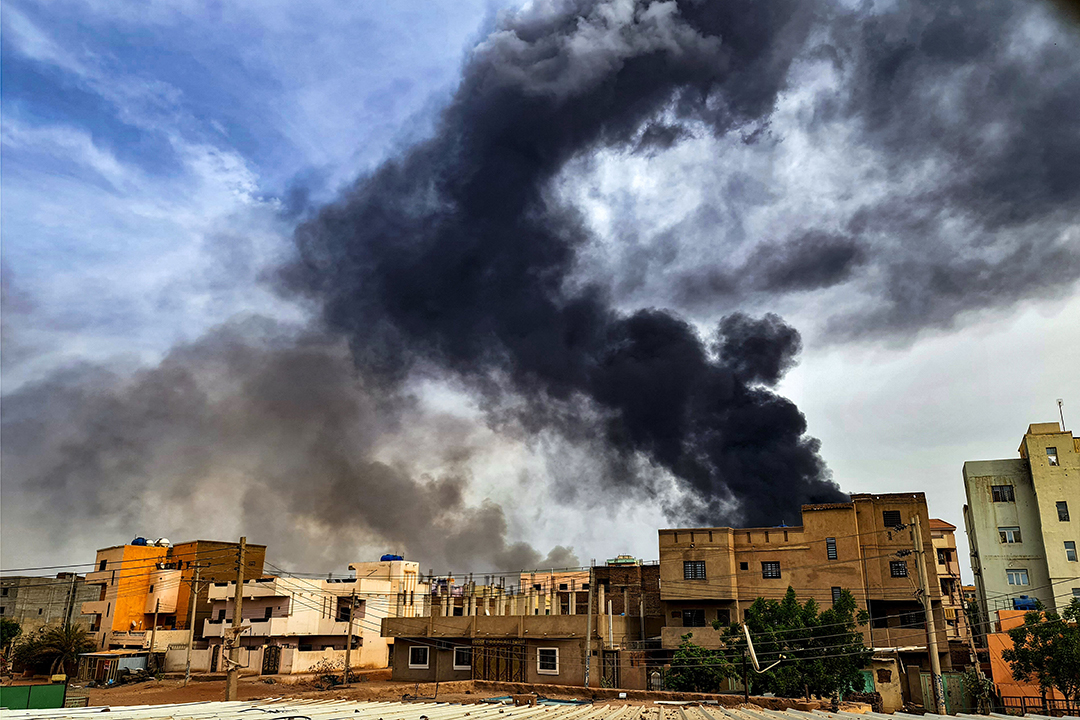Sudanese Armed Forces Might Collapse at Hands of RSF
ADF STAFF
In early March, the Sudan Armed Forces (SAF) retook sections of Omdurman from the Rapid Support Forces (RSF). The reconquest marked one of the SAF’s few victories after months of humiliating retreats and territorial losses since fighting broke out nearly a year ago.
Once seen as a force to be reckoned with, Sudan’s army has spent 11 months struggling — and often failing — to maintain control over vital national territory. This includes losing much of the Darfur region, most of the capital region and large swaths of the agricultural El Gezira region.
When the war began, the heavily armed SAF ruled the skies and wielded heavy weaponry. The army was financed through controlling business ventures ranging from farms to oil fields. Those advantages were quickly negated as the highly mobile, lightly armed RSF received financial backing from the United Arab Emirates, weapons from Russia’s Wagner Group (now known as Africa Corps) and fuel from supporters based in South Sudan.
“In the eyes of decision makers across the Horn of Africa’s capitals, the prospect of RSF supremo Mohamed Hamdan Dagalo “Hemedti” becoming Sudan’s new strongman has moved from hypothetical to distinct possibility,” Sudan expert Harry Verhoeven wrote for the London School of Economics.
As the war between the SAF and RSF grinds on, it is devastating Sudan’s economy, costing the country an estimated $80 million per day and shrinking the gross domestic product by up to 18%. Economist Haisam Fathi told Radio Dabanga in December that the formal economy has come to a “near standstill.”
In response, SAF leaders have turned to former high-ranking members of deposed dictator Omar al-Bashir’s government for financial support. The RSF continues to receive funds through the sale of gold smuggled to the UAE from mines controlled by Hemedti.
Since the outset of the war in April 2023, the SAF has taken a reactive, defensive approach to RSF assaults, leading it to lose ground repeatedly.
The capital of Central Darfur fell to the RSF in October when the SAF’s 21st Infantry Division fled the region. West Darfur fell to the RSF a few days later after most of the 15th Division garrison similarly fled, leaving behind caches of weapons.
In November 2023, the SAF’s 22nd Division retreated from the Baleela Oil Field, leaving the facility in the RSF’s hands.
With its Khartoum headquarters under siege since April 2023, Sudan’s government, led by SAF chief Gen. Abdel Fattah al-Burhan, now operates from Port Sudan, which is experiencing power shortages and a chronic lack of fresh water.
The fall of Wad Medani southeast of Khartoum earlier this year turned public opinion against al-Burhan and his management of the war, with some calling for him to be replaced as head of the SAF.
“Resistance to the RSF onslaught is weakening at all levels,” analyst Andrew McGregor wrote recently for the Jamestown Foundation. “The SAF is highly demoralized and suffers from high rates of desertion and defection.”
That places Sudan’s diverse population at risk of rule by the RSF, an Arab supremacist group with a history of brutality and ignorance of the means of development, administrative techniques, economic theory and international relations, McGregor added.
“The once mighty Sudan Armed Forces have made military and political errors that have increased the possibility of their disintegration and the collapse of the Sudanese state,” Verhoeven wrote.
The RSF, if it wins, is unlikely to restore Sudan or lead to a democratically elected civilian government many Sudanese seek, according to experts.
“Focused on self-enrichment, the RSF’s barely literate leadership has no rational plan for reviving the state,” McGregor wrote. “There is little chance that the RSF’s military success can translate into a brighter future for Sudan’s 46 million people.”


Comments are closed.